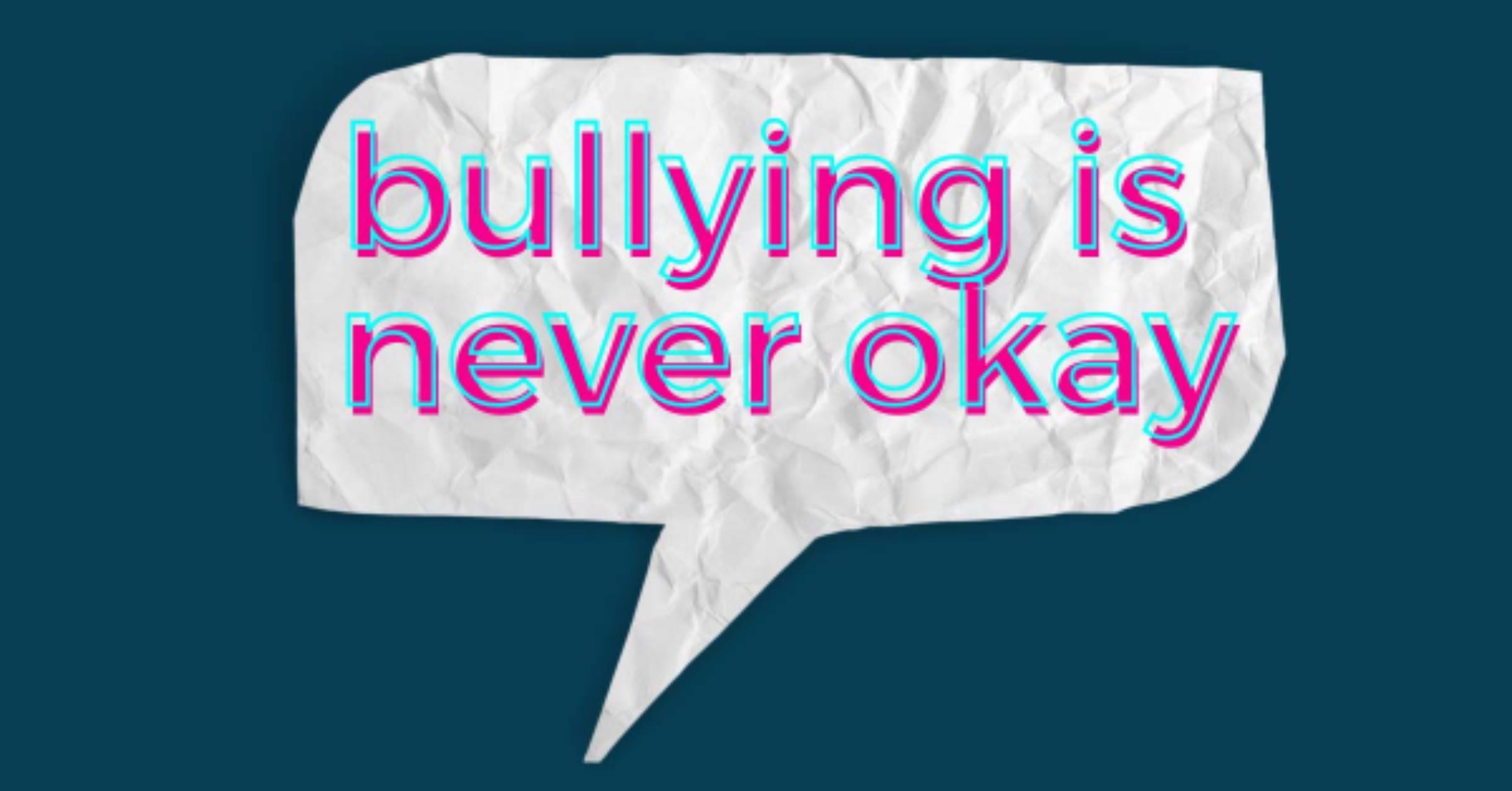Reviewed By Cara Collins - BA MBAC Adv. Dip.
Handling Bullying
23 March 2021
Bullying affects lots of different people at any age and can happen anywhere: at school, travelling to and from school, in sporting teams, in friendships or family groups.
Bullying is a repeated behaviour which is intended to hurt someone, either emotionally or physically, and bullying is often aimed at people because of their race, religion, gender, sexual orientation, appearance or disability.
Sometimes, however, bullying starts out as a ‘joke’ or ‘banter’, but it starts to get worse. As soon as these interactions make you feel upset or uncomfortable, embarrassed or scared, it’s time to take action. No one has the right to make you feel this way.
What does bullying look like?
- People calling you names
- Making things up to get you into trouble
- Hitting, pinching, biting, pushing and shoving
- Taking things away from you
- Damaging your belongings
- Stealing your money
- Taking your friends away from you or leaving you out
- Posting insulting messages or rumours online
- Saying insulting things about you or spreading rumours
- Threats and intimidation
- Making silent or abusive phone calls
- Sending you offensive texts or messages

What should you do if you’re being bullied?
Being bullied can make you feel alone, scared, stressed, anxious, ashamed, embarrassed or rejected. But remember: being bullied isn’t your fault. At times, it can make you feel like there’s nothing you can do, especially during times you’re around other people when you’re being bullied – like your friends – and nobody steps in to help you.
Not only is it important to get help if you’re being bullied, but always remember you never have to go through it alone, even when it feels like it. Reaching out to others can help you take action against the bullies.
- Tell your bullies to stop. Talking to the people who are bullying you and explaining how horrible/hurtful/immature it is might be enough. But sometimes bullying can make us feel too scared to speak out, and if so, that’s ok. There are other ways to help make the bullying stop.
- Ask your friends for support. Maybe your friends don’t realise what’s happening isn’t a “joke” or “banter” and you telling them how the situation has affected you can help them understand and step in to support or comfort you when you need it most.
- Deprive Them of Reaction. Bullies thrive on reactions. By not giving in to their provocations, you can weaken their power over you. It might discourage them as they aren't getting what they want.
- Keep a Record of the incidents that occur. Jot down in a diary or your phone what happened, the date and time of the event, and the individuals involved. This will help if or when you do decide to speak with a teacher or staff member about what's been going on.
- Block anyone who is bullying you from your social media or messaging apps. If the bullying extends online, consider blocking or reporting the individuals involved. Keep screenshots of photos, videos, texts, emails, or posts where bullying occurs before you delete them. This allows you to show a trusted adult so that they understand the extent of the bullying.
- Practice some constructive ways to respond. When you're in the throes of bullying, it's natural to feel a range of emotions, including anger, hurt, and frustration. The urge to retaliate might seem tempting – perhaps to send a hurtful message in return or expose the other person's actions. Instead of seeking revenge, focus on ways to address the bullying constructively. Ask friends and trusted adults to help you practice what to say.
- Tell someone. This should be someone you trust and feel comfortable with. Ask them to help you report what’s happened. For example, this might mean talking to a parent and asking them to phone your school, college or workplace.
- And lastly – always know you have support! There are many great resources online that can offer you guidance in sorting the bullying out – once and for all. There is a National Bullying Helpline you can call, where you can get support and Young Minds have great resources on how to stand up to bullying.
Remember: you don’t have to go through the bullying alone. Don’t stay silent, and instead, speak up when bullying is happening. You won’t be alone when you do. Whether it’s speaking to your friends or family, an adult you trust or a counsellor, someone will be there for you.
Bullying, in all its nasty ways, is never okay.
Get Inspired Further
Teens, Social Isolation & Screentime
As parents we want the best for our children, and we can spend a huge proportion of our time worrying about what they are doing especially when it comes to screen time and shutting themselves away in their bedroom.
the importance of healthy relationships
Stephen Maginn shares his thoughts and advice on how and why it is important that we look after ourselves and our relationships, especially given the added pressure at this time of year. He shares some fabulous services & online resources that can help get your relationship back on track.
what is play therapy
Play Therapy is a form of therapy which uses 'play' as a means of self-expression.



